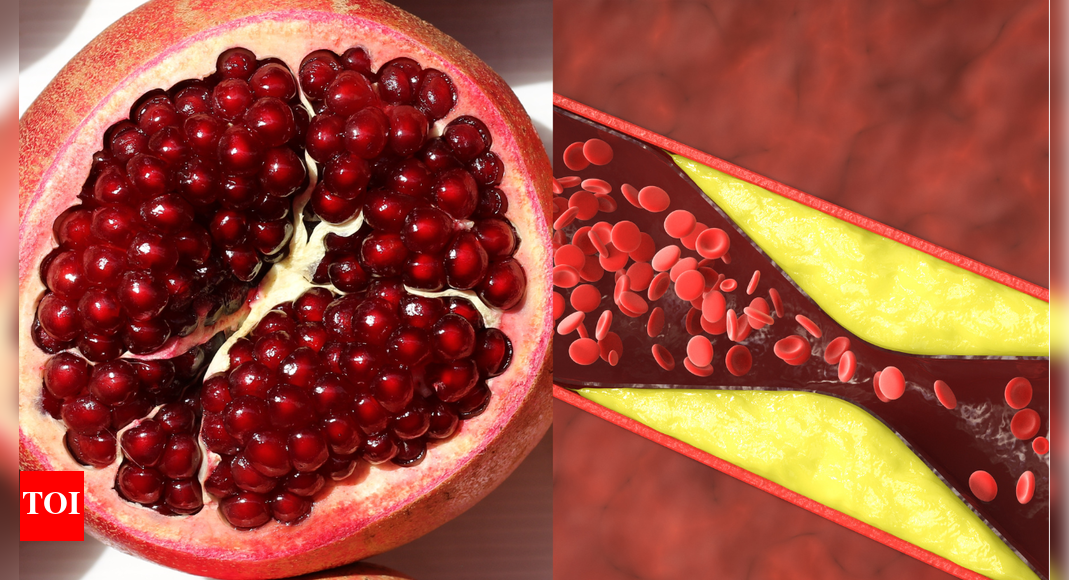
Rich in vibrant red seeds, pomegranate isn’t just a delicious fruit. It is a powerpack of antioxidants with a long history of medicinal use. As awareness about heart health grows, people are increasingly turning to pomegranate for its potential heart-protective benefits. However, many are claiming that pomegranate juice can actually help clear arterial blockages and even reverse the early signs of atherosclerosis. Here we decode how much of it is backed by science and is pomegranate juice actually a magic cure.What science says about pomegranate juice

An NIH backed study in clinical nutrition followed patients with artery stenosis for three years. These were patients who were suffering narrowing of the arteries in the neck. Those who drank pomegranate juice daily showed reduced arterial thickness and lower systolic blood pressure. The benefits became noticeable and continued for over three years. Another study on Atherosclerosis found that pomegranate extract reduced markers of arterial inflammation. Since Chronic inflammation in arteries can accelerate heart disease, the results concluded that pomegranate shows potential in protecting coronary arteries.Some researches are without a doubt promising, but it is important to interpret that not all studies have shown significant or consistent effects on arterial plaque through pomegranate juice. Research on this effect is very limited and conducted on small sample sizes. However, many indirect effects provide benefits to arterial health. These may include: Antioxidant supportPomegranate is rich in polyphenols, particularly punicalagins. These have potent antioxidant effects. By lowering oxidative damage to arterial walls, pomegranate juice may slow down plaque formation and maintain healthier blood vessels.Anti-inflammatory effectsChronic inflammation plays a significant role in arterial damage and plaque buildup. Studies have shown that pomegranate extract can reduce markers of inflammation in arteries. Reducing inflammation can ultimately help stabilize existing plaques and potentially lower the risk of cardiovascular complications.

Supporting healthy cholesterol levelsNIH research indicates that compounds in pomegranate may reduce the oxidation of bad cholesterol, which is a key step in plaque formation. While it may not drastically lower cholesterol levels on its own, preventing LDL oxidation is important for maintaining arterial health and slowing the progression of atherosclerosis.Blood pressure regulationRegular consumption of pomegranate juice has been associated with reductions in systolic blood pressure. Lower blood pressure reduces stress on arterial walls, which can indirectly help maintain their integrity and reduce the risk of cardiovascular complications.While pomegranate juice doesn’t completely or directly clear artery blockages, researches suggest other benefits can indirectly support artery health.








